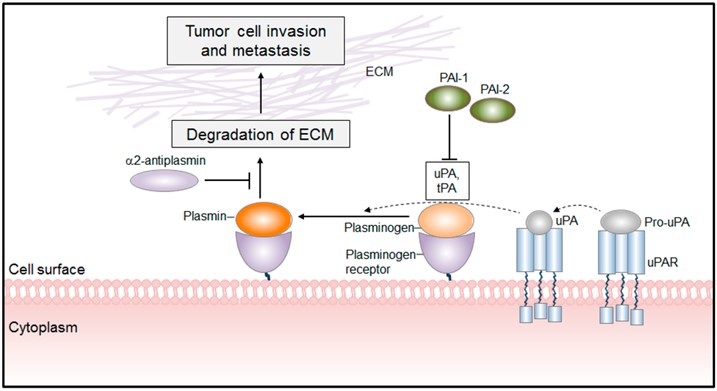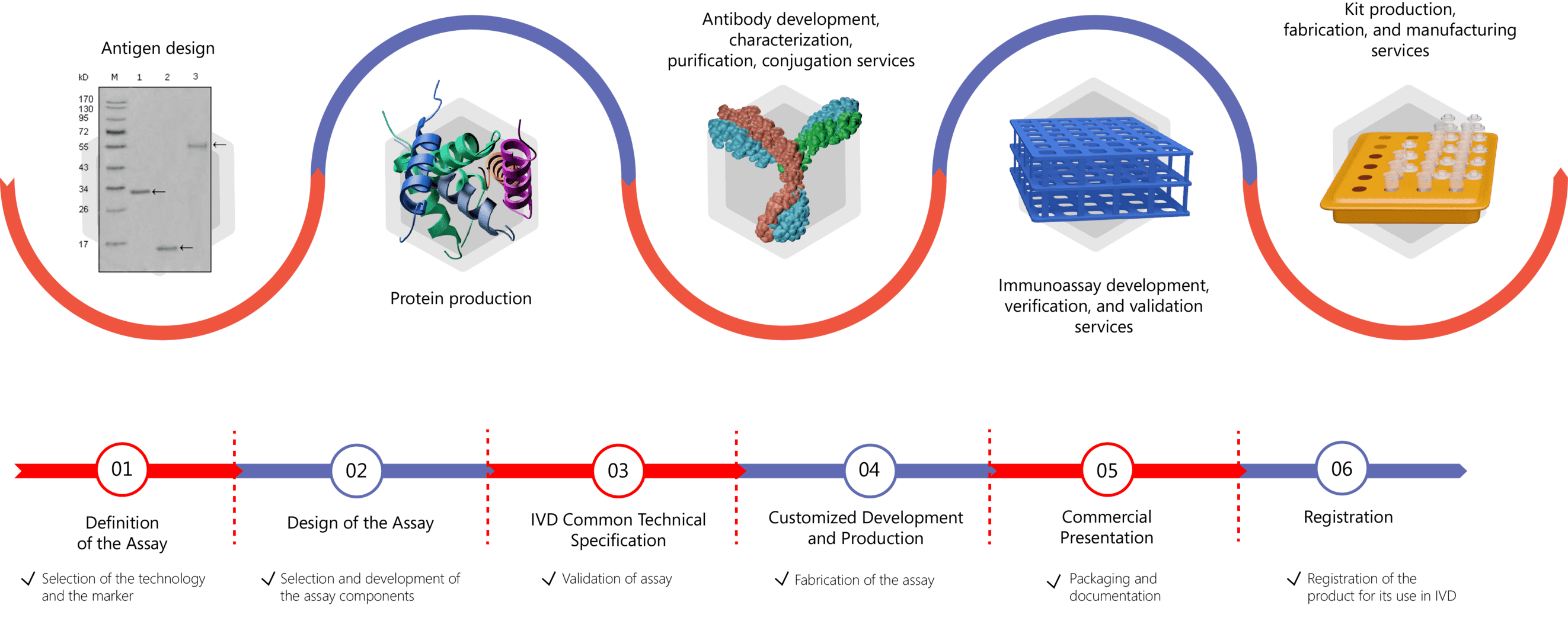In vitro diagnostic (IVD) tools have been a hot topic in the diagnostic field. As a world-leading service provider in antibody development, Creative Biolabs offers customized antibody discovery and production services for diagnostic applications. Our IVD antibody and immunoassay development services target a wide range of disease biomarkers with diagnostic or prognostic potential, such as the urokinase-type plasminogen activator (uPA) biomarker.
Introduction to uPA
uPA (urokinase-type plasminogen activator) is a serine protease encoded by the PLAU gene. It is not only observed in the blood and urine but also in the extracellular matrix of many tissues. uPA has three domains, including the serine protease domain, the kringle domain, and the growth factor domain. The specific substrate of uPA is plasminogen, which can be converted to plasmin in the Arg-Val bond site. Activated plasmin regulates the thrombolysis or extracellular matrix degradation by triggering a proteolytic cascade. And, this cascade is reported to have great involvement in vascular diseases and cancer progression. In addition, uPAR also was known as CD87 (a membrane receptor of uPA), they bound with high affinity. The binding of uPA with uPAR can activate the signaling pathways, such as MAPK, Jak-Stat, and focal adhesion kinase systems.
The Role of uPA in Tumor Progression
One mechanism through which uPA promotes the cancer invasion and metastasis is the degradation of ECM (extracellular matrix). The uPA converted product plasmin (PLA) is a broad-spectrum protease that can degrade or remodel many of the ECM elements, like laminin, fibronectin, tenascin C, and osteopontin. After this action, growth factors such as fibroblast growth factor 2, TGF-β, and HGF are released from the ECM and activated to enhance tumor cell proliferation, migration, invasion, and metastasis. The plasmin also enables to activate the precursor form of uPA and pro-uPA, in addition to the specific matrix metalloproteases (MMP1, MMP2, MMP3, MMP9, MMP12, and MMP13), which can degrade the diverse forms of collagens, kallikrein-related peptidases, and other proteins in the ECM. Thus, the uPA triggers a significant proteolytic system to remodel the ECM.
 Fig.1 PLA-mediated tumor cell invasion and metastasis formation.1
Fig.1 PLA-mediated tumor cell invasion and metastasis formation.1
uPA As A Biomarker for Breast Cancer Prognosis
A high level of uPA is associated with a variety of types of cancers, such as breast, lung, gastric, ovarian, etc. The increased concentration of uPA has been reported to have a poor prognosis in breast cancer patients. Studies have also indicated that patients with primary breast cancer that have elevated values of uPA are likely to have larger tumors, higher malignancy grade, invasive ductal histopathological type, and hormone-independent. All the findings of uPA in breast cancer and together with its powerful role in the process of cancer invasion and metastasis render the uPA as a promising prognostic marker for breast cancer.
IVD Antibody & Immunoassay Development Services Provided by Creative Biolabs
Antibody-based immunoassays are the most applied tools for measurement of the levels of disease biomarkers in different clinical samples. Aided by our cutting-edge technologies and advanced IVD platform, Creative Biolabs provides high-quality IVD antibody & immunoassay development services against different disease biomarkers. We provide services including antigen design, antibody generation, recombinant protein expression, and assay development, validation, and production. For more detailed information about what we offer for each stage of the development process, please click the links below:
- IVD Antibody Development
- Antibody Pair Development
- Antibody& Protein Conjugation
- IVD Immunoassay Development

Please feel free to contact us for more information and discuss your project needs.
Reference
- Duffy, Michael J., et al. "uPA and PAI-1 as biomarkers in breast cancer: validated for clinical use in level-of-evidence-1 studies." Breast cancer research 16.4 (2014): 1-10. Distributed under Open Access license CC BY 4.0, without modification.
For Research Use Only.